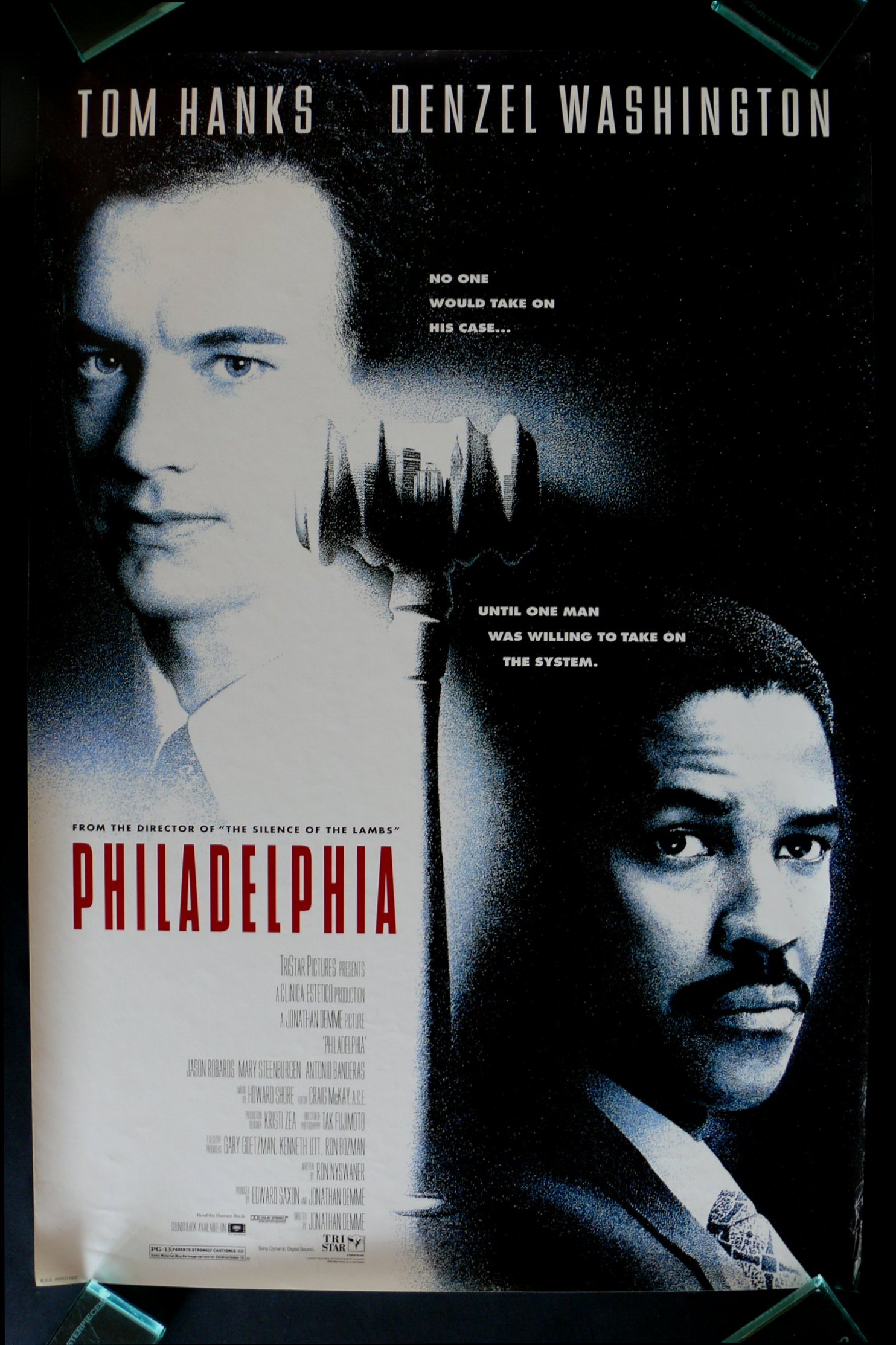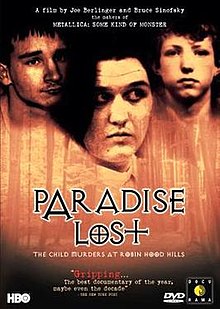1. A Few Good Men
Starring Tom Cruise (before he went crazy), Jack Nicholson and Demi Moore - this is a brilliant movie in which an arrogant, green lawyer - Daniel (Tom) leads a team of 3 in the defence of 2 soldiers accused of killing a fellow Marine in Guantanamo Bay. The challenge facing them is not only the fact that there is virtually no evidence exonerating the two men (who have admitted to hazing the victim), but the fact that they are up against Col. Jessup (Jack Nicholson) who heads the base at Guantanamo and is immensely powerful. They realize that the only reason Daniel was given the case was because he had a reputation for plea bargaining and it was assumed that the case would never be tried in court. As the team tries to uncover the facts hidden beneath the shadowy, rigid layers of the U.S. military, Daniel and his team have to take decisions which, if foiled, could not only cause the 2 defendants to be held guilty of murder but also cause the lawyers to be court-martialed themselves. The last few scenes of the movie are probably its finest - when Daniel stakes everything in order to get a confession. It is also these last few moments which gave rise to one of the most famous movie quotes of all time:Jessup: You want answers?
Daniel: I want the truth!
Jessup: You can't handle the truth!
2. Primal Fear
One of my all-time favorites! And before writing about it, I have to get this out of my system: "You are watching Primal fear, with Richard Gere, here, on Star Movies" - that is the line they would use before cutting to advertisements - and it rhymed like a BOSS! Anyway, I digress. This movie is as much a psychological thriller as it is a legal movie. I won't give away too many details - because if you haven't watched it yet - I would highly recommend that you drop everything and watch it now! The movie is an adaptation of William Diehl's novel and it is about a young man named Aaron (Ed Norton) who is accused of brutally murdering a priest. Aaron is an altar boy and your heart goes out to this soft-spoken, stammering guy - who seems too sensitive to be able to do the heinous acts that he has been accused of. Yet the evidence against him is enormous - and it is the job of high-profile lawyer - Martin Vail (Gere) to get the court to acquit him of murder. As his sessions with Aaron progress, disturbing facts emerge about the Catholic Archbishop and Aaron reveals a much darker side of his psyche. All the actors perform brilliantly - and watching the conflicting personalities of Aaron Stampler will leave you on the edge of your seat.3. Philadelphia
This 1993 movie was path-breaking for its time - dealing with the issues of homosexuality, AIDS and discrimination. Andrew Beckett (Tom Hanks) is a hard-working senior lawyer at one of the largest law firms in Philadelphia. He is gay, but not open about it. His career seems to be shining and he's assigned what is possibly the firm's most important case. However things start to unravel when Andrew discovers he is HIV+ and one of the senior partners at the firm notices a lesion on his face. Andrew stays away from the office and finishes the paperwork on time, but the paperwork mysteriously disappears on the day that it needs to be filed, before the statute of limitations runs out. It surfaces at the last minute, but Andrew is fired for incompetency. Andrew believes the whole thing was a ploy to terminate him because the firm became aware of his sexual orientation and also because of the stigma associated with HIV. After a string of unsuccessful attempts to hire a lawyer to represent him in a discrimination suit against his firm, Andrew goes to Joe Miller (Denzel Washington). Joe is very homophobic and refuses. There is a very poignant scene here where Andrew mentions to Joe that he is HIV+ and suddenly Joe is very aware of all the things that Andrew is touching. After being refused for the nth time, Andrew walks out on the pavement and for a second, he looks completely broken - alone and shattered. It is one the most moving scenes in any film I have seen. However, as the movie goes on, Joe does agree to represent Andrew. The rest of the movie is an emotional upheaval - for Andrew as well as Joe. Andrew is suddenly a pariah in society, with only his family and partner for support. He has to deal with the guilt of possibly having exposed his partner to the virus while dealing with homophobia every waking minute of the trial; all the while succumbing to the disease that is slowly killing him. Joe has to come to terms with his own homophobia - and while he still doesn't feel comfortable with the idea of homosexuality, his repulsion gives way to understanding as he sees that Andrew and his partner Miguel (Antonio Banderas) seem to share the same feelings he does for his wife. This movie does not have a fairy-tale ending - but it does have one of the most powerful endings in cinema. The last few scenes are simply shots from home videos when Andrew was a child, a child playing on the beach, unaware of the painful issues he will come to face as an adult - and it seems to convey the innocence, joy and equality that we all are born with. Also notable is the soundtrack by Bruce Springsteen and Neil Young - "Streets of Philadelphia" and "Philadelphia" are both apt and meaningful additions to the scenes.4. The Paradise Lost trilogy
Paradise Lost: The Child Murders at Robin Hood Hills is a documentary that spawned 2 follow-up documentaries. It documents the trial of three young men accused of the murder of three boys on the outskirts of West Memphis, Arkansas. I really like investigative documentaries, and this is one gem of a legal documentary. It shows how the heinous nature of the crime whips up this small, rural town into a bloodlust for revenge. In the cross-hairs are 3 boys who do not fit the societal profile of normal - they wear black, listen to hard rock and metal, and one of them has books on Wicca and paganism. What would otherwise be dismissed as teenage eccentricities, suddenly gets contorted as damning evidence against these three. It also showcases how an ignorant and inefficient police department, under public pressure to find the killer, extracts confessions under duress and forces guilt on the trio who came to be known across America as the "West Memphis Three". The documentary also profiles some of the other people in the town and raises questions about the evidence being used in the court, and more importantly, the evidence being ignored in order to convict the West Memphis Three. The other 2 documentaries follow-up on what turned out to be an 18-year hell for the three men. Convicted as teenagers in 1994, they were only released last year, in 2011 after reaching a deal with the prosecutors. For those who are interested in legal trivia, they were released after entering Alford pleas - one of the oddities in the American legal system. It is a guilty plea that asserts innocence ("I'm guilty because I know the jury will convict me, but I'm actually innocent"). The scary thing, of course, is that the real killer(s) are still out there and the justice system doesn't care because the West Memphis Three entered guilty pleas.5. Mississippi Burning
This 1998 drama is a largely fictionalized account of a true tragedy. It begins dramatically with the real-life abduction and murder of three civil rights activists in Mississippi. What follows is the fictional account of the FBI investigation of this case. The two FBI agents - Anderson (Gene Hackman) and Ward (Willem Dafoe) are up against an insular town in which the Ku Klux Klan is hand in glove with the Sheriff's office. Anderson and Ward are very different in their personalities and working styles and they don't get along very well. Ward has a more textbook-style of dealing with the case, while Anderson has a more subtle approach, understanding the nuances of racial relations in the south. As the film progresses, the two learn to work with each other as they realize they have to battle the racially biased system, fighting against the very people who are expected to uphold justice in this rural village in Mississippi.6. Erin Brockovich
The last one in the list is a feel-good movie, about how a struggling single mother of 3 is able to bring down a large greedy corporation. It is also largely a true story - which makes it all the more remarkable! Erin Brockovich (Julia Roberts) is an unemployed, single mom when she gets into a car accident. She sues the man involved in the crash but loses the case, and guilts her lawyer into employing her as a clerk. While not exactly hero material so far, the actual story begins when she reviews the case file of a resident in the town of Hinkley. What catches her eye is the fact that the family has suffered from numerous ailments and surprisingly, their medical expenses have been covered by the Pacific Gas and Electric Corporation. She starts digging around, and finds dangerous levels of hexavalent chromium in the water supply of this small town. She also uncovers a cluster of families who are suffering from many different ailments. The company, of course, denies any wrongdoing - and the residents are actually pro-PG&E because they do not connect their ailments with the company's chemical discharge and see the company as a medical benefactor helping out their society. A David against this mighty Goliath, Erin must find evidence which proves the company was aware of the existence of hexavalent chromium in the water system and of the dangerous consequences it could have on the residents. She begins a door-to-door campaign, leading to one of America's largest class action suits.Well, there you have it - 6 of my favorite "law movies". If you haven't seen any of them, I would definitely recommend that you watch it. If you have seen some and loved/ hated them, leave your comments below!






No comments:
Post a Comment
Note: Only a member of this blog may post a comment.